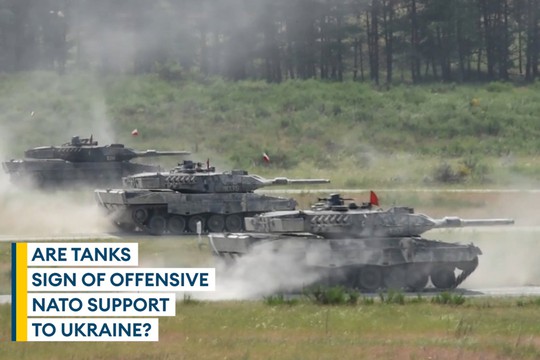The first anniversary of Russia’s special military operation in Ukraine falls on February 24. The Russian strategy of attrition war has not yet produced the desired political outcome but has been a success nonetheless, writes Indian Ambassador and prominent international observer M.K. Bhadrakumar.
The delusional “westernist” notions of the Moscow elite that Russia can be a dialogue partner of the West have dissipated thoroughly, with ex-German Chancellor Angela Merkel’s stunning disclosure recently that the West’s negotiations with Russia regarding the Minsk Agreement were an “attempt to give Ukraine time” and that Kiev had used it “to become stronger.”
Thus, the accession to Russia four ex-Ukrainian regions — Donetsk and Lugansk [Donbass], Zaporozhye, Kherson oblasts – accounting for around one-fifth of Ukrainian territory, is a fait accompli now, and Kiev’s recognition of it is a pre-requisite for any future peace talks.
The Kremlin has put necessary mechanisms in place to galvanise the defence industry and the economy to meet the needs of the military operations in Ukraine. From a long-term perspective, one historic outcome of the conflict is going to be Russia’s emergence as an unassailable military power that draws comparison with the Soviet Red Army, which the West will never again dare to confront. This is yet to sink in.
Under the plan approved by Putin, the Moscow and the Leningrad military districts will be created, three motorised rifle divisions will be formed in the Kherson and the Zaporozhye oblasts (that have been annexed in September) and an army corps will be built in the northwestern region of Karelia bordering Finland.
The internal western assessment is that the war is going badly for Ukraine. Spiegel reported last week that Germany’s Federal Intelligence Service (BND) “informed security politicians of the Bundestag in a secret meeting this week that the Ukrainian army is currently losing a three-digit number of soldiers every day in battles.”
The Biden Administration is hoping to buy time till spring to revamp the pulverised Ukrainian military and equip it with advanced weaponry. The old stocks of Soviet-era weaponry have been exhausted and future supplies to Ukraine will have to be from hardware in service with NATO countries. That is easier said than done, and western defence industry will need time to restart production.
All the bravado that ‘Kiev is preparing for an offensive to drive the Russians out of Ukraine’ has vanished.
The big picture, therefore, as the war enters the second year is that the West is working feverishly on plans, with the Biden Administration leading from the rear, to deliver heavy armour to the Ukrainian military by spring, including German Leopard tanks. If that happens, Russia is sure to retaliate with strikes on supply routes and warehouses in western Ukraine.
Dmitry Medvedev, the outspoken former Russian president who is close to Putin and serves as deputy chairman of the powerful security council, explicitly warned, “Nuclear powers have never lost major conflicts on which their fate depends.”
There is the ‘X’ factor — US domestic politics as it approaches the 2024 election year. The Republicans are insisting on an auditing of the tens of billions of dollars spent on Ukraine — $110 billion in military aid alone — making the Biden Administration accountable.
The CIA chief William Burns paid an unpublicised visit to Kiev, reportedly to transmit the message that US arms supplies beyond July may become problematic.
read more in our Telegram-channel https://t.me/The_International_Affairs

 11:53 01.02.2023 •
11:53 01.02.2023 •























